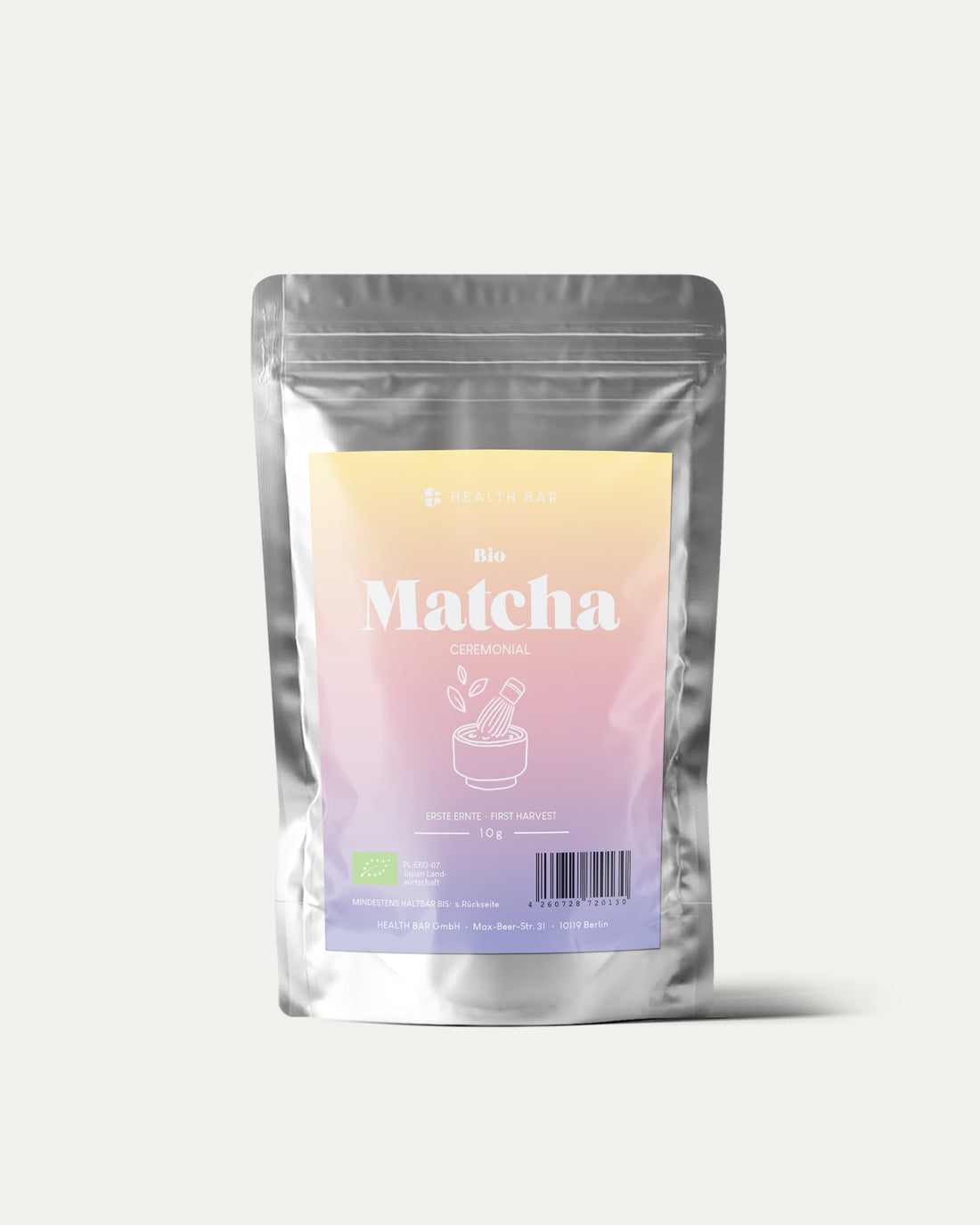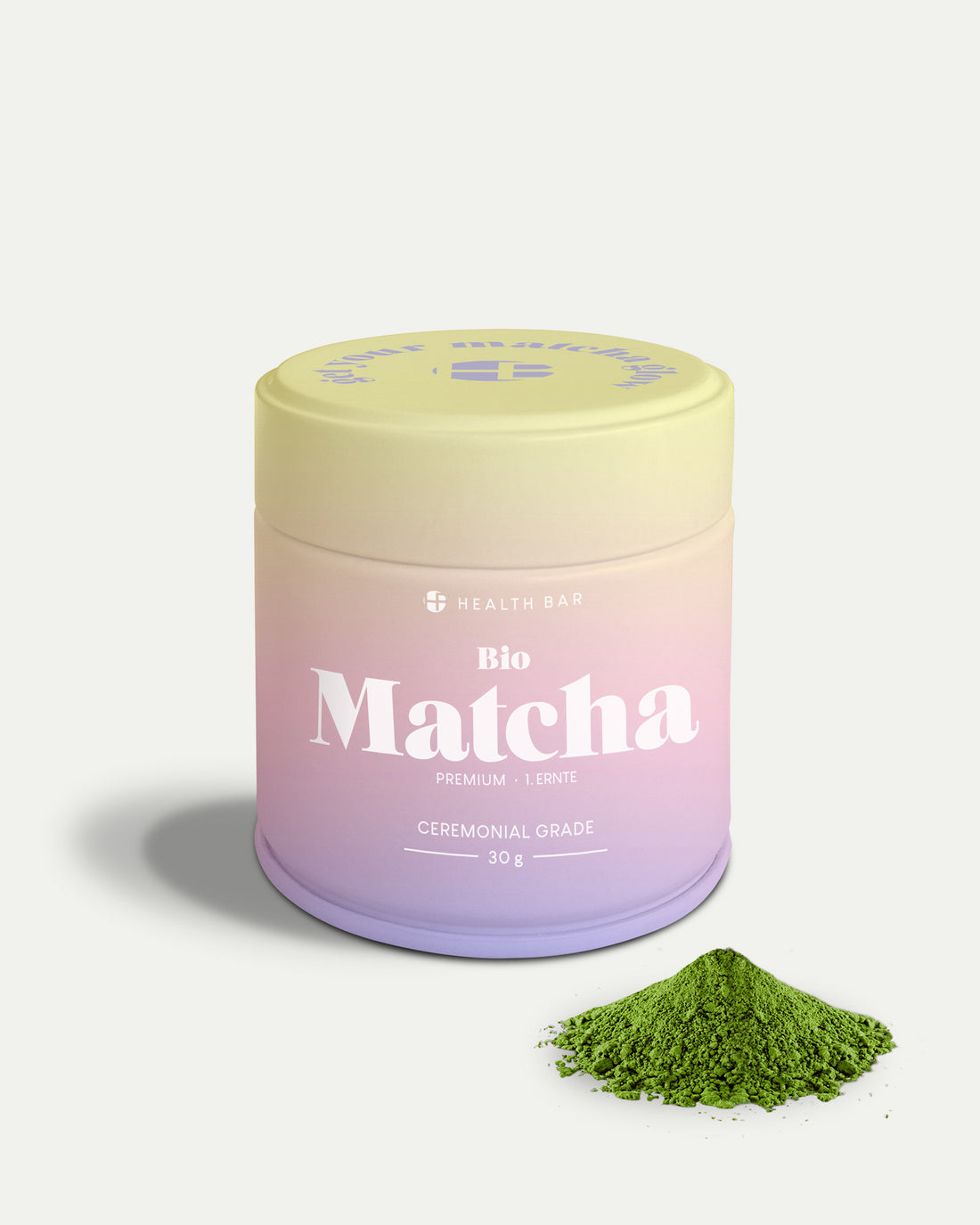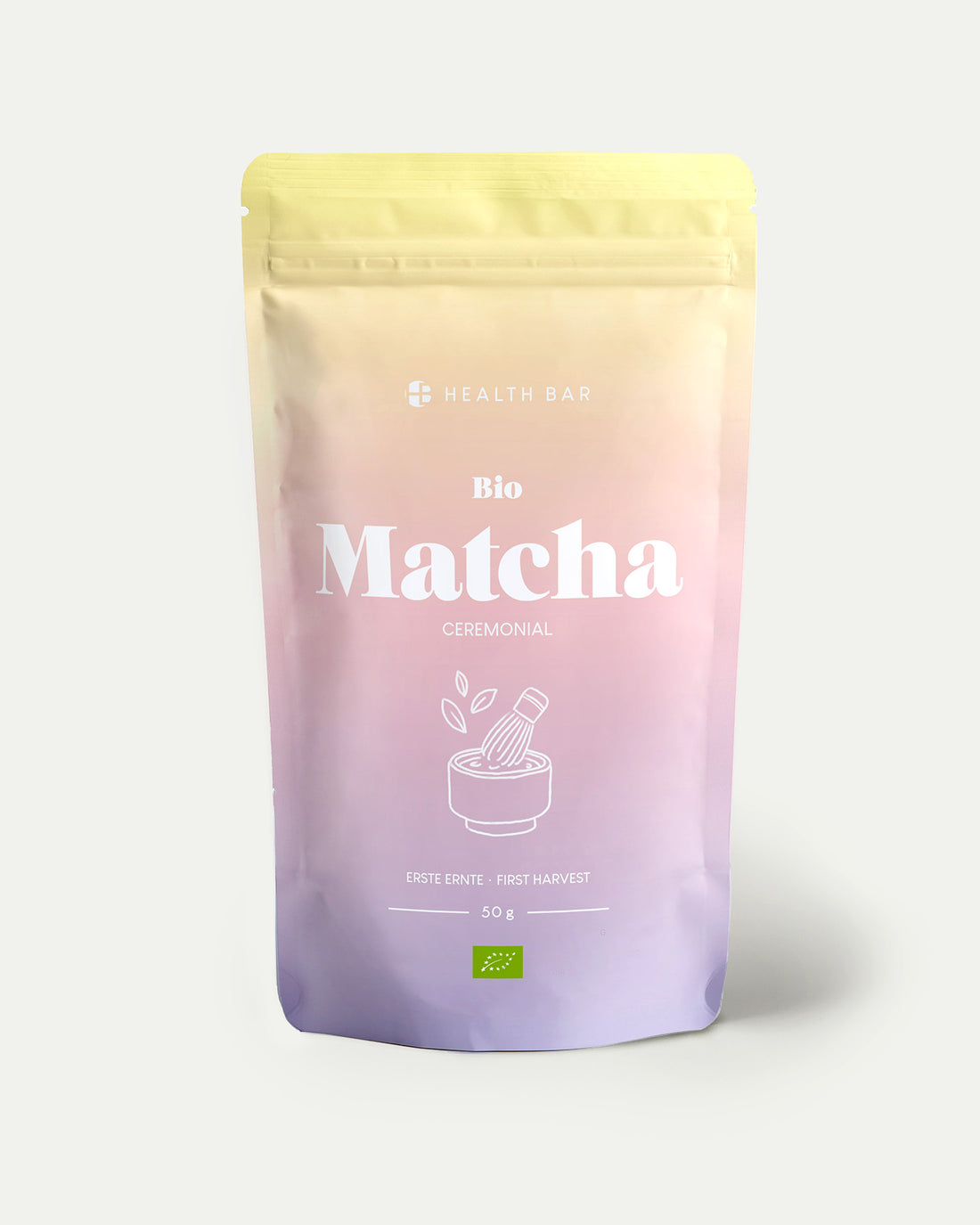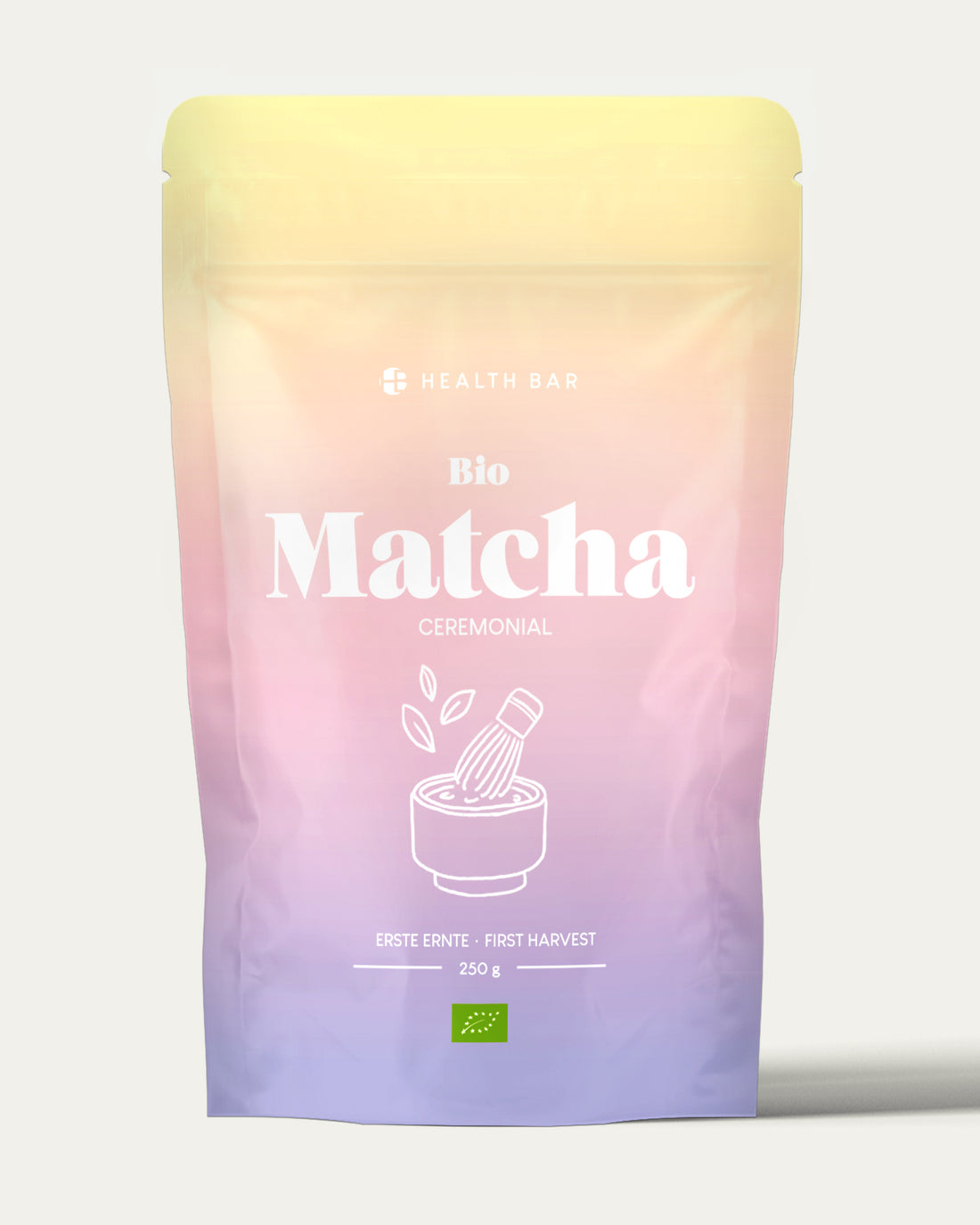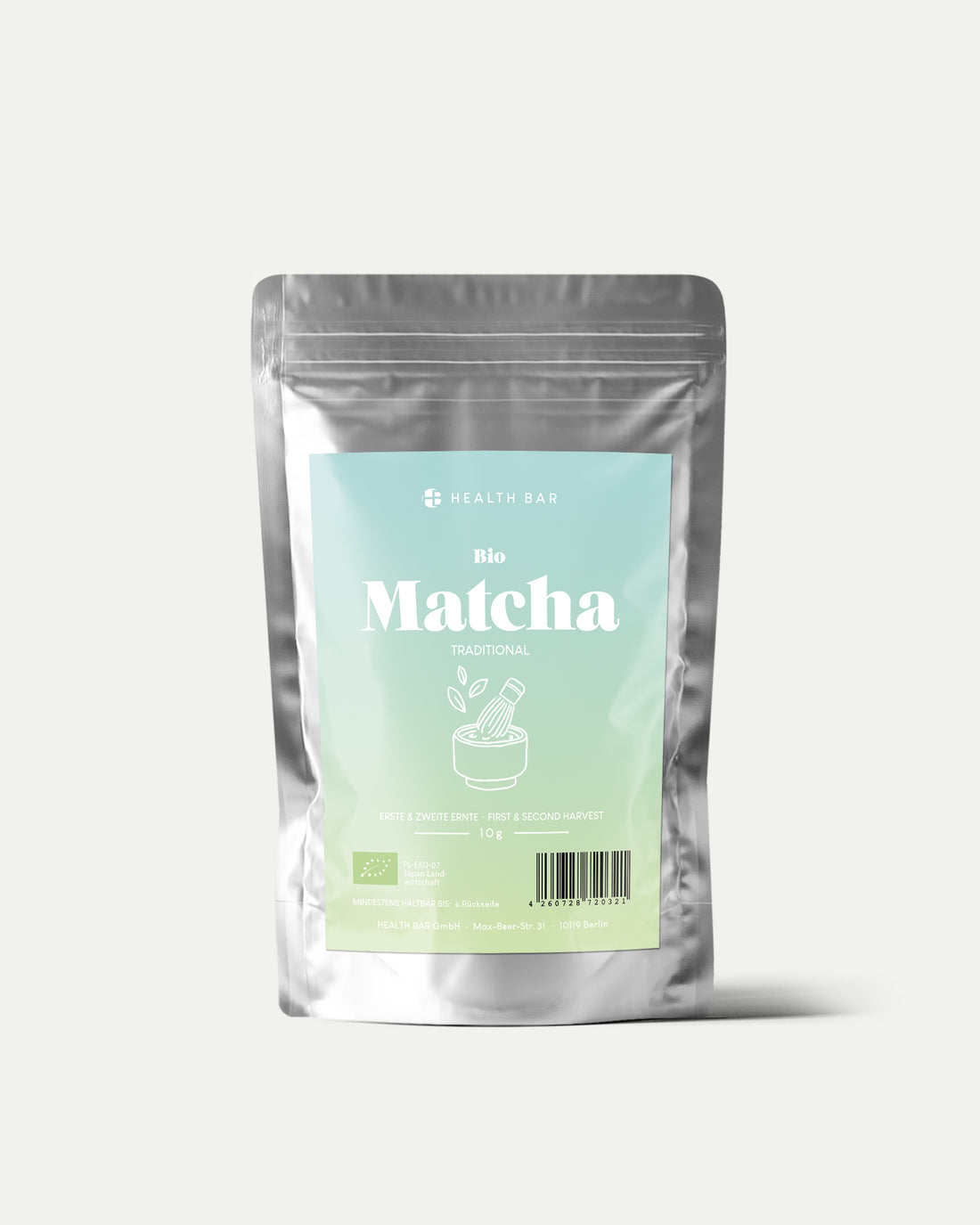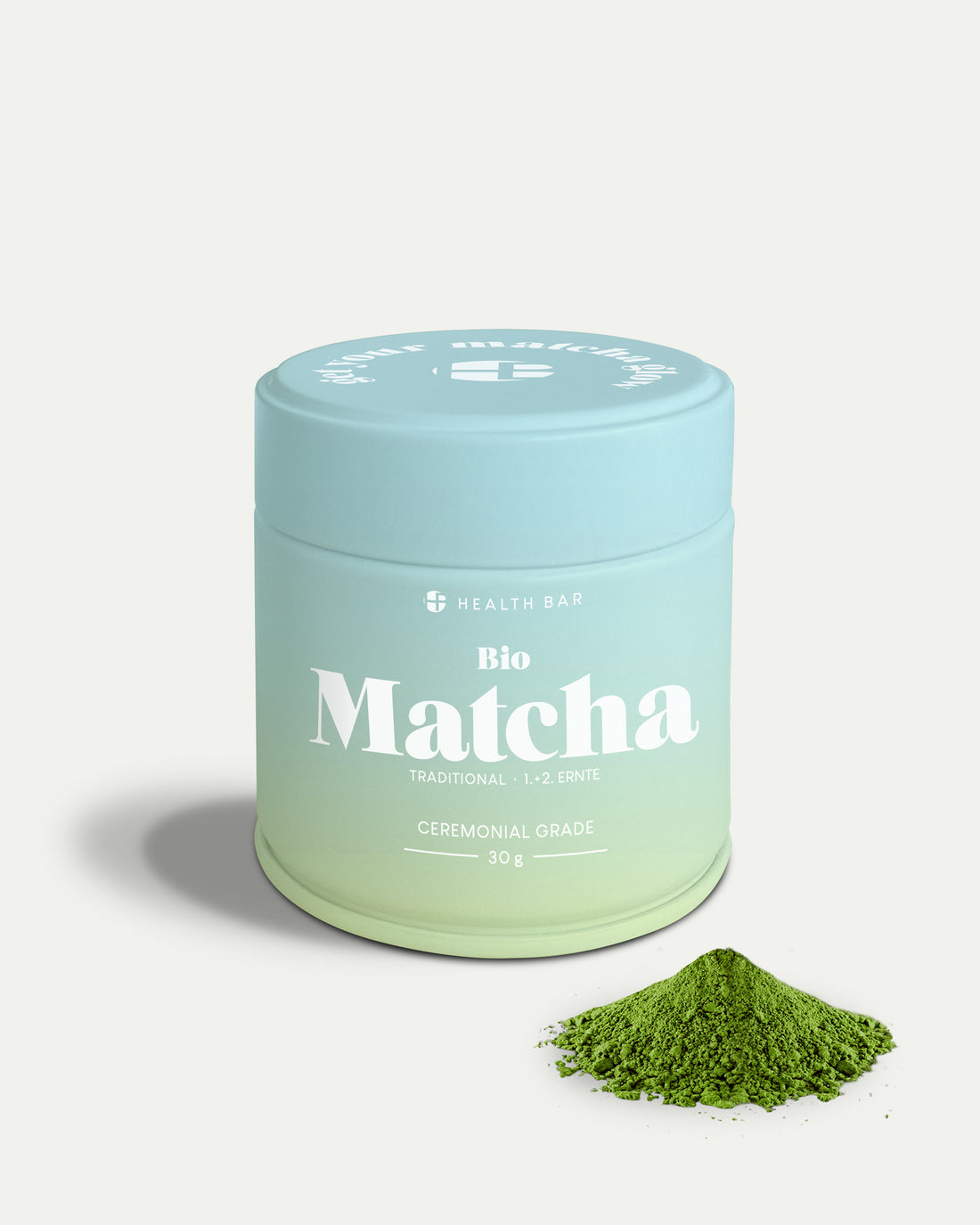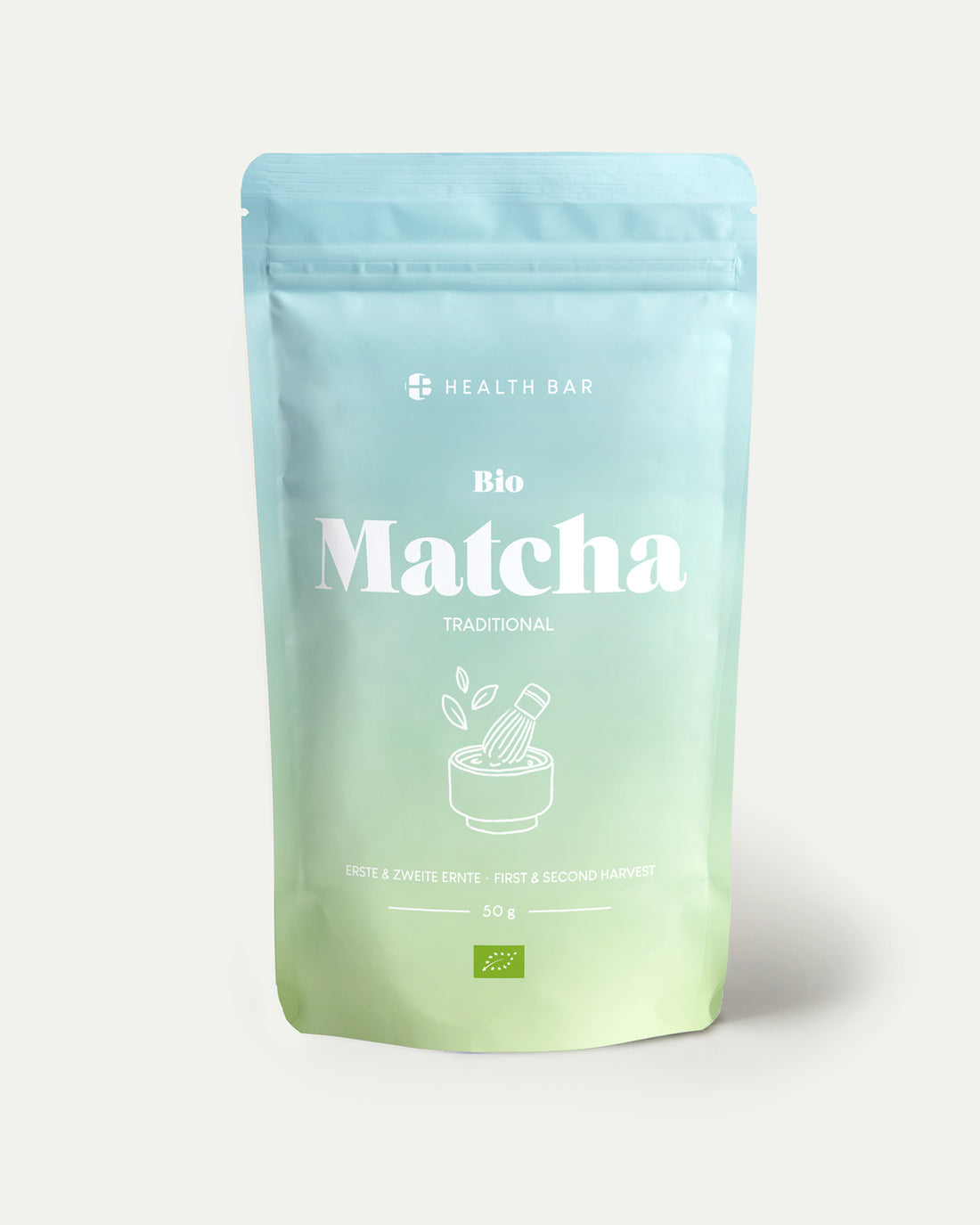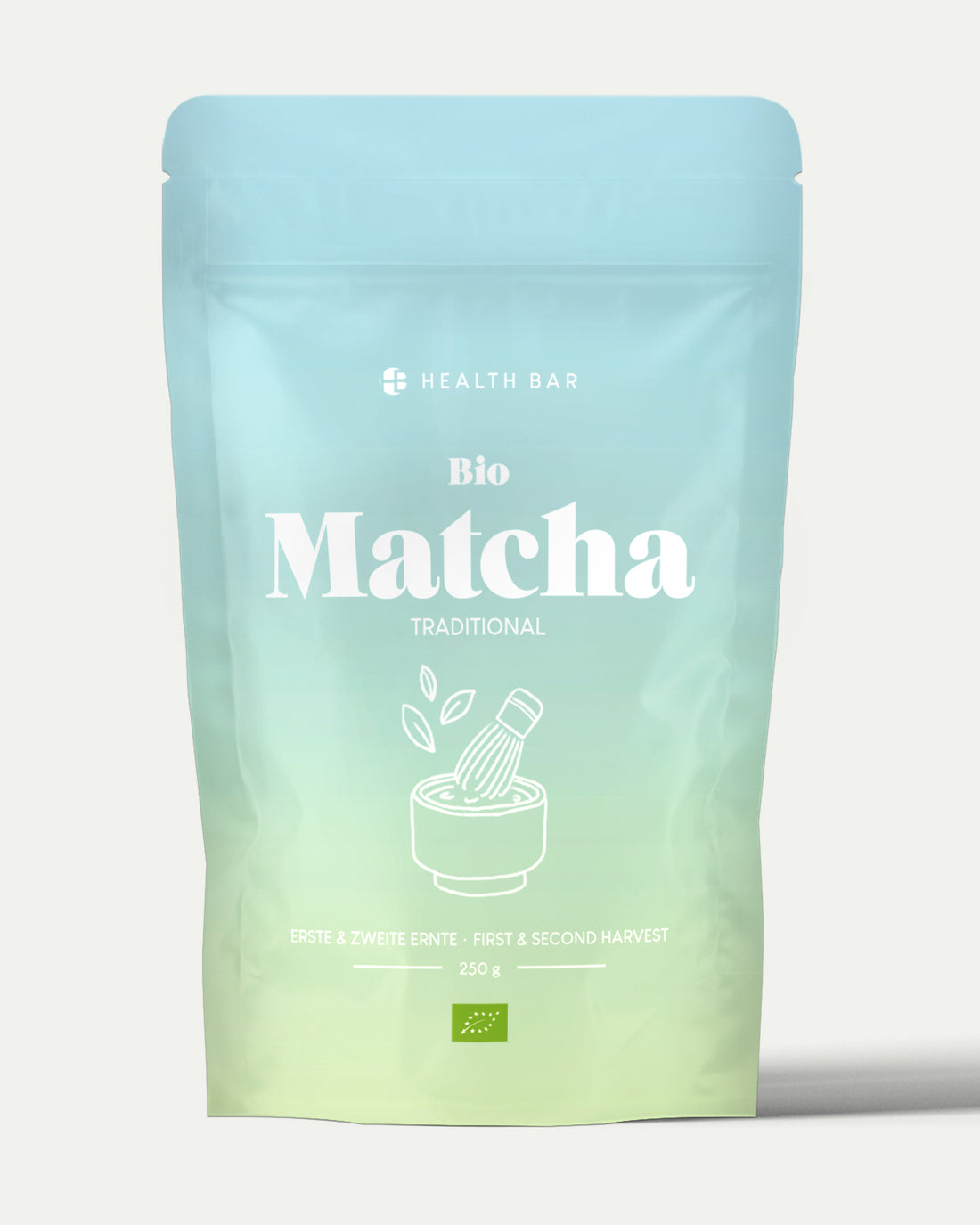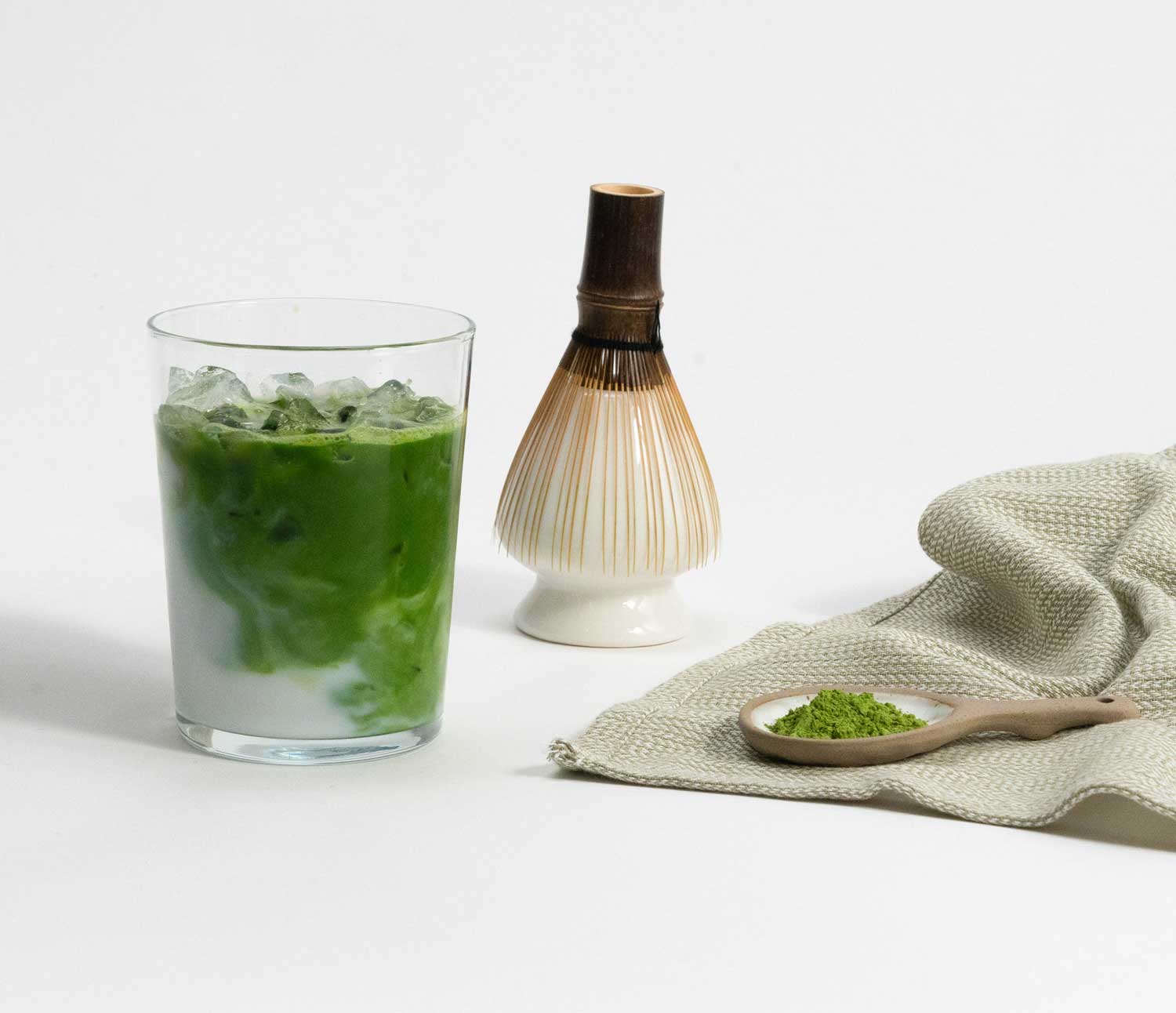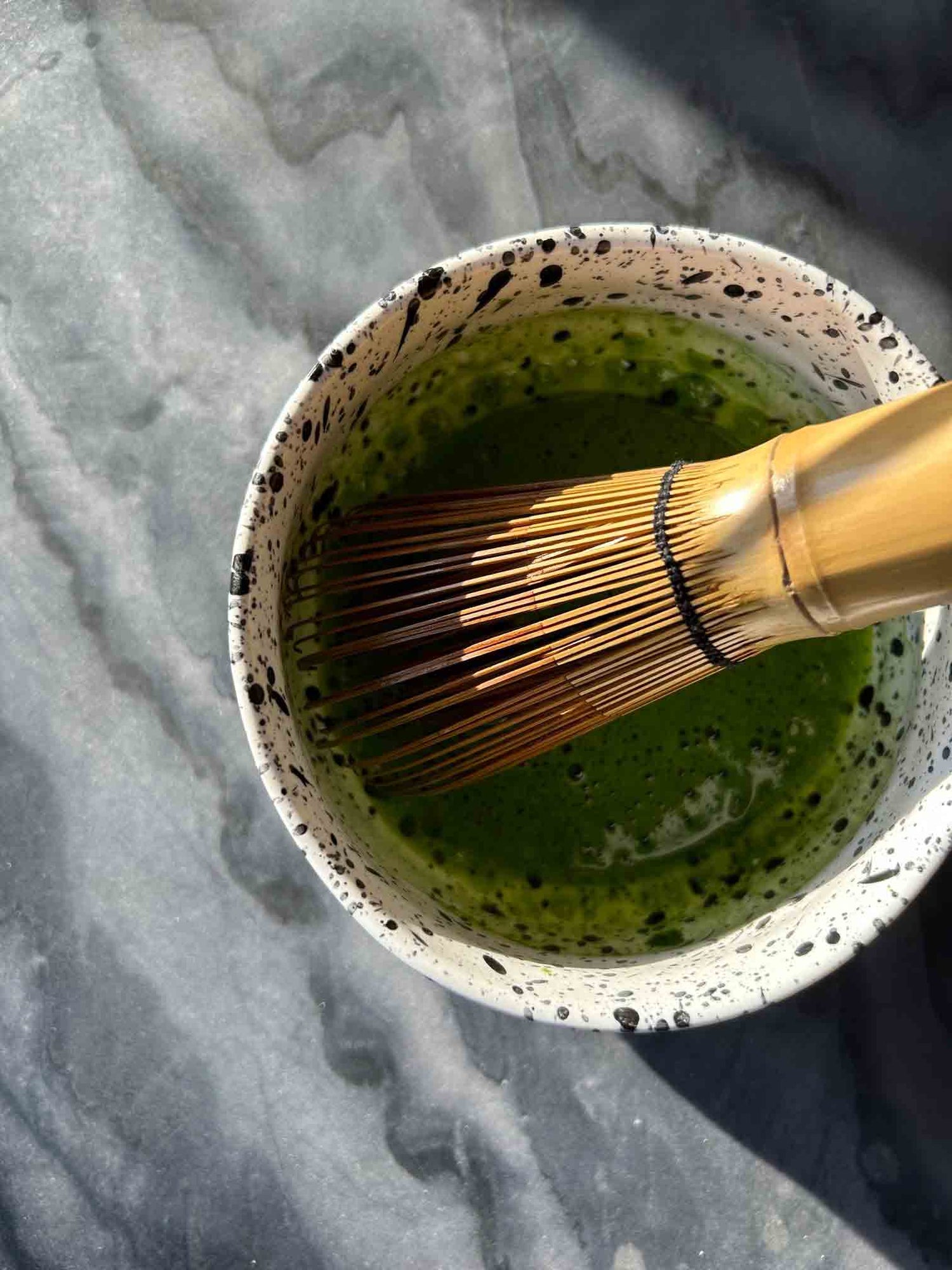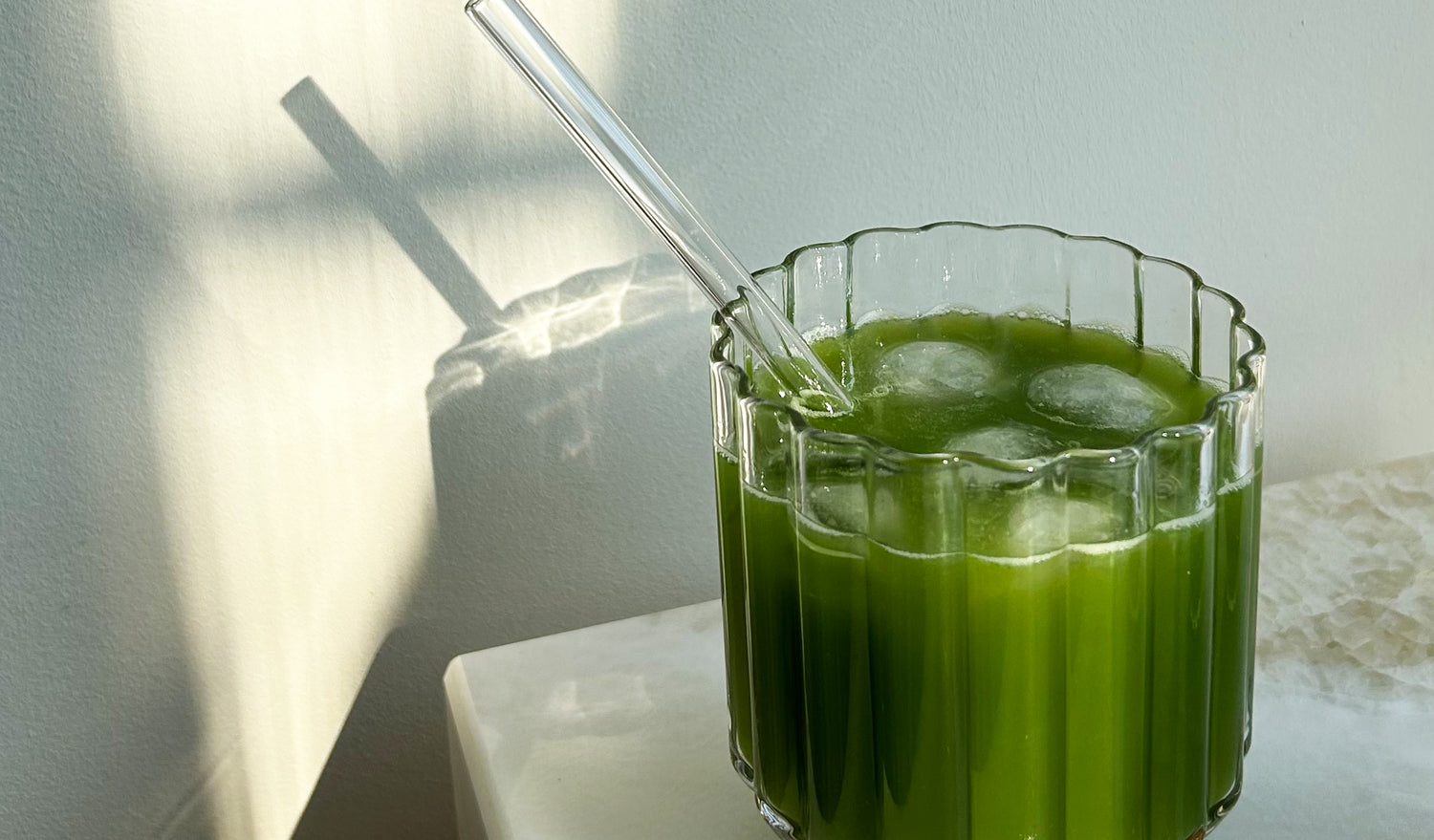
So many advantages
Matcha and its benefits
In Japan, Matcha has a long tradition and is the centerpiece of every tea ceremony.
In the USA, it has been the trend drink par excellence for several years now. And meanwhile, the so-called champagne of teas is becoming increasingly popular even outside the Asian-American community. Those who reduce their coffee consumption in the long term and switch to Matcha will quickly experience a noticeable effect.
Calm and relaxed
L-Theanine, an amino acid found in tea leaves, stimulates the emission of alpha waves in the brain, which influence our mood, reduce stress, and create a feeling of relaxation and calmness - without causing fatigue. In Matcha tea, the content of this amino acid is even higher than in other green tea varieties.
Increases energy levels and improves endurance
The energy level after a cup of Matcha can last more than 6 hours. Although Matcha contains caffeine, there are no side effects after consumption that are typical for the state after drinking coffee. These include: hyperactivity, high blood pressure, and nervousness. The energy boost is stable because the caffeine is evenly distributed in the blood.
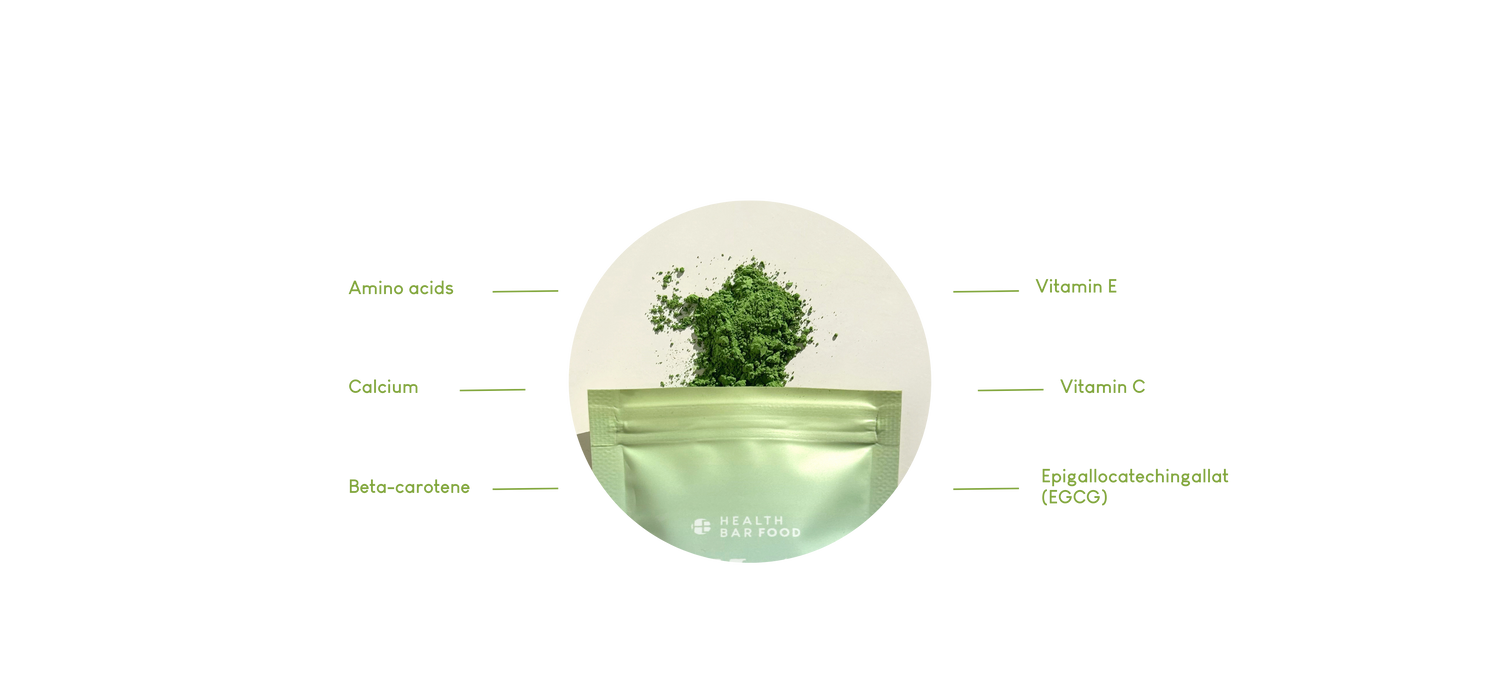
Strengthens the immune system
Catechins, which are abundant in Matcha, have antibacterial and antiviral effects and therefore strengthen the immune system. They also play a significant role in protecting the skin from harmful sun radiation. A particularly strong antioxidant in Matcha is a catechin derivative called EGCG. This organic compound shows a strong anti-tumor effect and is 100 times stronger as an antioxidant than vitamin C.
Helps to burn excess calories
Matcha accelerates the body's metabolism, leading to a 4 times faster fat burning. Unlike other diet supplements, Matcha is a natural dietary supplement that does not cause side effects such as increased heart rate or elevated blood pressure.
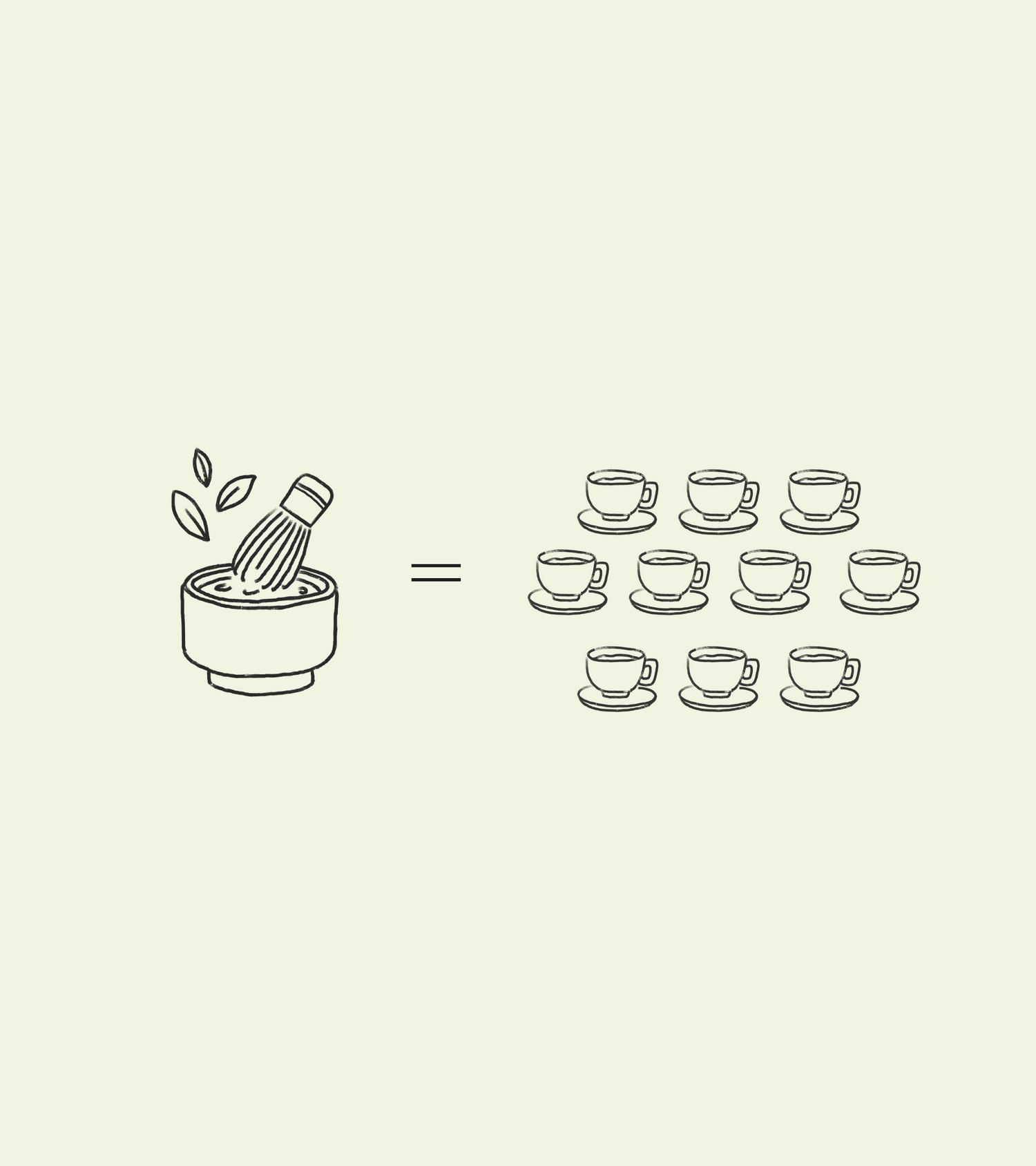
A cup of Matcha is equivalent to 10 cups of regular green tea in terms of antioxidant content.
Cleans from the inside
Thanks to the high content of chlorophyll, the pigment responsible for the green coloring of leaves, Matcha can cleanse our body of toxins.
Lowers bad cholesterol
According to studies, people who regularly drink Matcha have lower levels of bad LDL cholesterol and higher levels of good HDL cholesterol. Men who drink Matcha have an 11% lower incidence of heart disease than those who do not drink it (American Journal of Clinical Nutrition, 2011). Since Matcha has a high concentration of many nutrients, the same applies here: balance is key.
A daily amount of 1 to a maximum of 2 cups of Matcha provides the body with the perfect nutrient boost.


